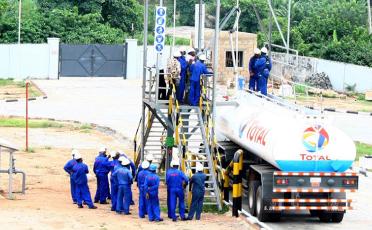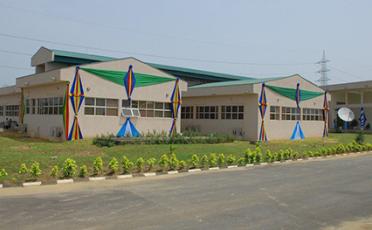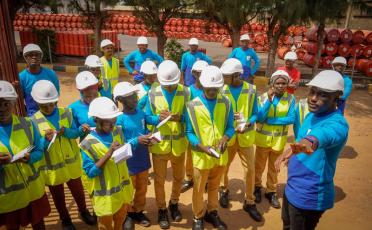
Our Commitment
Committed to better energy, over 98, 000 employees help throughout the world to provide the Group’s customers with products and services that are safer, more affordable, cleaner, more efficient, more innovative and accessible to the greatest number of people.
TotalEnergies puts Corporate Social Responsibility (CSR) at the heart of its activities and conducts its operations according to the following principles of :
- protecting the safety and security of people and its facilities;
- limiting its environmental footprint;
- ensuring that its Code of Conduct is applied in its sphere of operations;
- incorporating the challenges of sustainable development in the exercise of its activities;
- increasing its local operations by placing dialogue with its stakeholders at the heart of its policy and contributing to the economic and social development of the regions where the Group has operations with the objective of creating shared value;
- promoting equal opportunities and fostering diversity and cultural mix among its personnel.
Our Projects
Our Partners
The Nigerian National Petroleum Corporation (NNPC) is the state oil corporation which was established on April 1, 1977. In addition to its exploration activities, the Corporation was given powers and operational interests in refining, petrochemicals and products transportation as well as marketing.
NNPC is in a joint venture partnership with Total E&P Nigeria in exploration and production of oil and gas. The partnership is contracted through a Joint Operating Agreements (JOA) which is a basic, standard agreement between the NNPC and Total in Nigeria.
About NNPC
In 1988, the NNPC was commercialised into 12 strategic business units, covering the entire spectrum of oil industry operations: exploration and production, gas development, refining, distribution, petrochemicals, engineering, and commercial investments. Between 1978 and 1989, NNPC constructed refineries in Warri, Kaduna and Port Harcourt and took over the 35,000-barrel Shell Refinery established in Port Harcourt in 1965. In 1988, the NNPC was commercialised into 12 strategic business units, covering the entire spectrum of oil industry operations: exploration and production, gas development, refining, distribution, petrochemicals, engineering, and commercial investments.
SPDC partners with TotalEnergies in Nigeria through Joint Venture partnership to explore and produce of oil and gas.
Shell at a glance
As one of the world’s leading energy companies, Shell plays a key role in helping to meet the world’s growing energy demand in economically, environmentally and socially responsible ways. In Nigeria, the Shell operated companies SPDC, SNEPCO and SNG employ more than 6000 direct employees and contractors of which over 90% are Nigerians.
Chevron in Nigeria partners with TotalEnergies in Nigeria through Joint Venture partnership to explore and produce of oil and gas.
Chevron is the third-largest oil producer in Nigeria and one of its largest investors. In Nigeria, we operate under a joint-venture arrangement with the Nigerian National Petroleum Corporation and have assets on land and in near-offshore regions of the Niger Delta. Chevron also has extensive interests in multipartner deepwater operations. We operate the Agbami Field, one of Nigeria's largest deepwater discoveries. We also have a nonoperated interest in the Usan Field.
Mobil Producing Nigeria is one of the largest oil producers in Nigeria. The company commenced operations in Nigeria in 1955 under the name Mobil Exploration Nigeria Incorporated (MENI). MPN operates a Joint Venture with the Federal Government of Nigeria, through the Nigerian National Petroleum Corporation (NNPC). The Federal Government has a 60 percent share, with the remaining 40 percent being MPN. Since 1961, when the company was granted Oil Prospecting License (OPL) offshore present Akwa Ibom State, MPN has made visible contributions to the development of Nigeria's oil and gas industry. The company and its joint venture partner, NNPC, operate over 90 offshore platforms comprising of about 300 producing wells at a capacity of over 550 thousand barrels a day of crude, condensate and natural gas liquids (NGL).




